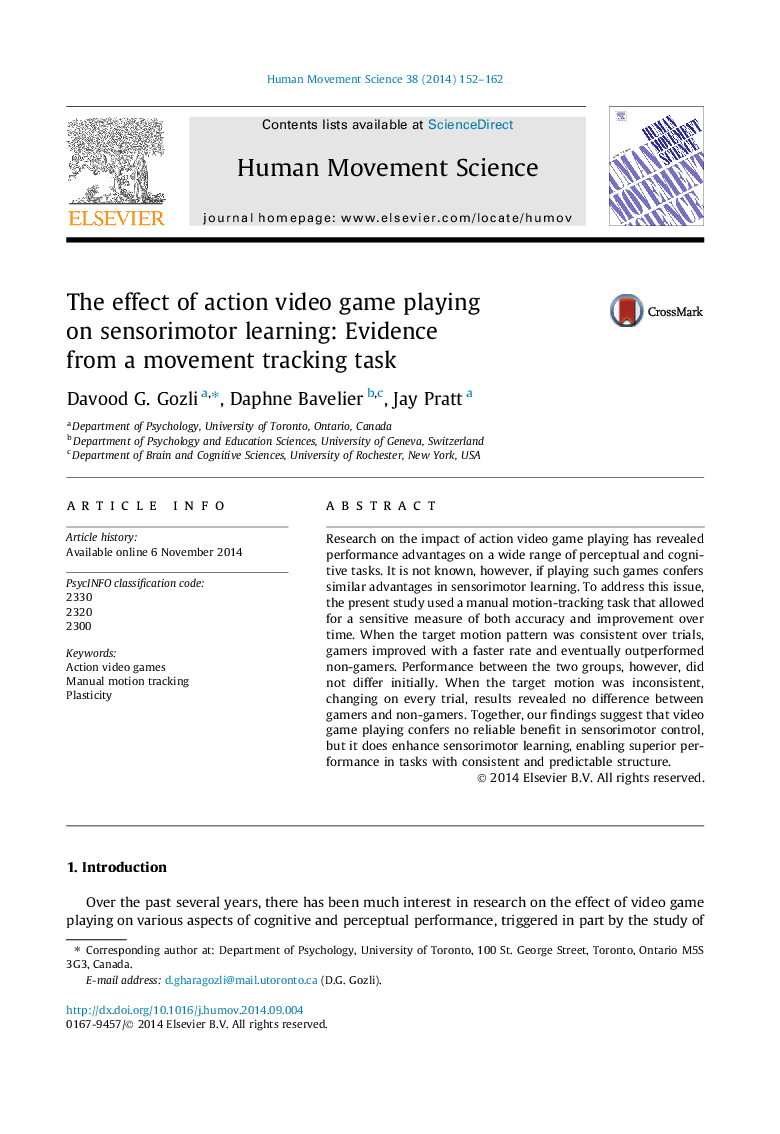| Article ID | Journal | Published Year | Pages | File Type |
|---|---|---|---|---|
| 7292310 | Human Movement Science | 2014 | 11 Pages |
Abstract
Research on the impact of action video game playing has revealed performance advantages on a wide range of perceptual and cognitive tasks. It is not known, however, if playing such games confers similar advantages in sensorimotor learning. To address this issue, the present study used a manual motion-tracking task that allowed for a sensitive measure of both accuracy and improvement over time. When the target motion pattern was consistent over trials, gamers improved with a faster rate and eventually outperformed non-gamers. Performance between the two groups, however, did not differ initially. When the target motion was inconsistent, changing on every trial, results revealed no difference between gamers and non-gamers. Together, our findings suggest that video game playing confers no reliable benefit in sensorimotor control, but it does enhance sensorimotor learning, enabling superior performance in tasks with consistent and predictable structure.
Related Topics
Life Sciences
Neuroscience
Cognitive Neuroscience
Authors
Davood G. Gozli, Daphne Bavelier, Jay Pratt,
